|
The Health Minister and National Security Minister have been working together to get Cuban nurses into Trinidad and Tobago, to assist in fighting the COVID-19 pandemic. Minister of National Security, Stuart Young highlighted that it is anticipated that a plane will be coming from Cuba, in the very near future, to bring these nurses to our shores.
The Minister made it clear that these nurses would be quarantined for 14 days upon their arrival. Source: Power 102FM, April 2020
0 Comments
TT-born nurses based in the US Ria Anderson, left, and Lisa-Marie John  WITH almost half the US covid19 deaths in the state of New York, and almost 10,000 in the city, Marabella-born US-trained nurse Lisa-Maria John said she hopped on a plane to what is now referred to as “ground zero” because she was bound by duty. Coming from a family of nurses, with three aunts and two cousins caring for the sick, the 32-year-old progressive-care nurse said she left the safety of Virginia, where the pandemic is not as widespread, took a 21-day contract, grabbed a one-hour flight, and the next day began caring for patients with the most severe cases of the virus. As of Saturday morning, New York State had 222,284 cases and 14,636 deaths, and New York City had 131,263 cases, with 8,893 deaths. “The outbreak is nowhere as bad as it is in New York,” John said. “It can’t be compared to anywhere else in the world right now except for maybe Italy.” No one knows the seriousness of the disease’s effect on the state as well as Ria Anderson, who works in another hospital in New York City. Born and raised in Maloney, Anderson, 43, contracted covid19 on the job. She spent less than a week at home. Now she is back at work, caring for her patients, with the mindset that it will get better, and until that happens, she will do all she can. Both women spoke with Sunday Newsday via WhatsApp calls and texts. Anderson’s only regret is passing the virus to her four-year-old son Ethan. “Initially I was scared, not for myself but my son,” explained Anderson, a single mother. “Unfortunately he had mild symptoms and had to be isolated for 14 days. “I had a lot of guilt. But I knew we were both healthy and would overcome it. My family, on the other hand – that includes my cousins, aunts and brothers – were very concerned and scared that the outcome would not be favourable. “Now that I feel good and back out to work they (gave) a sigh of relief.” Anderson developed symptoms on March 24, was tested two days later and on April 3 was confirmed positive. Her treatment was Tylenol and keeping herself hydrated. By April 9 she was back to work, having been cleared to return. PPE protection a must With over eight years as an ICU-trained nurse, Anderson said she has had the burden of watching patients suffering the worst effects of the virus, and, with visits banned, patients dying without their loved ones around them. John, whose contract ends on April 21, said she has worked 12-hour shifts for 13 days without a break. Her first day off was on April 15. She spent most of it sleeping, and the rest replenishing her groceries and “taking in some fresh air and sunlight.” She too fights the virus in the ICU, which is outside her specialty as a progressive care nurse. But, she said, “This is not the first disease that nurses have faced. If you are afraid of a disease, then do not become a nurse. You are trained – use the training. “I do not work if I do not have the personal protective equipment (PPE); it is in my contract. If I get sick, then I will have to tell my patients to go around and make room for me. So it is important that health care workers are protected.” While John has all the PPE she needs, Anderson said there were times when it was in short supply, but the job had to be done. She recalled at one time reusing the same mask for an entire week. “I understand there’s limited supplies, but the changing of guidelines to accommodate insufficient materials is not the answer, and, most importantly, I believe is not safe. “The suggestion at one time of using a bandanna instead of an N95 mask is beyond me.” That suggestion is on the website of the Centers for Disease Control (CDC) as one of several “strategies or options to optimize supplies of facemasks in healthcare settings” for professionals, as a last resort when no facemasks are available. Mental strength dealing with covid19 Anderson said: “All the patients that I have been caring for have covid19. Unfortunately, a few of them passed away. “This has been the most heartbreaking experience. No one is allowed to have visitors, due to hospitals being on lockdown, because of the exposure that guests can bring to the hospital. They are all alone, and I am one of the few people they see.” Meanwhile, “As nurses, we are constantly going into the rooms of patients who are positive, exposing ourselves to the virus.” But rather than being worried for herself, she said: “I still haven’t fully processed everything that has been going on in the world, but I am thankful to be there for those in time of dire need. “Since being tested, I’m so grateful for my life and being able to overcome this virus. I have never been so grateful for my health. Every night I fall asleep I thank God I’m healthy. Every morning I wake up I thank God for another day. I thank God for putting me in a position to help others. “I wonder what type of scars this will leave on us. What type of bond that it will create? “As much as I want to run, this is my role. This is what God put me here to do. In spite of the fear that this coronavirus brings, I do not hesitate to get up, get ready and help fight, by taking care of all patients.” John wakes up at 4 am every day to catch a chartered bus to work. “Physically, the level of exhaustion I have – I don’t know how I keep going, even as a healthy person I don’t know what is driving me... “(But) there are no words to describe how difficult it is to lose three to five patients in a day. I tell myself: ‘There are sick people out there. Get up and get to work.’” She added, “You know, I hate being called a hero. This is just part of the job.” Not everyone around them has been able to accept the risks they have chosen to face. “My parents were upset when I told them I was going to New York,” John said. Asked what she did to calm them down, she answered “You ever tried calming a Trini parent?” Her family are more reconciled to her choice now, and daily phone calls after she returns to her apartment around 8 pm usually soothe their worries. Anderson said she was offered but is yet to access the counselling provided by her hospital. Both women are studying for master’s degrees in nursing. Anderson hopes to graduate next year as a family nurse practitioner, and John is scheduled to graduate in December in nursing education. NY nurses’ advice to TT Speaking from the epicentre of the covid19 pandemic, the two nurses offered this advice. Anderson said, “My advice is to stay home, practise proper hygiene and safe distance to stop coronavirus. Simple.” John was not as succinct: “I know we as a people abhor being told what to do. We walk to the beat of our (own) drums. “However, this isn’t the time for that. “Some may ask, ‘Well, who is you? You just a nurse!’ “Well, I am the nurse who has seen the most patient deaths in her nine-year career. I am the nurse who watched people in their 30s fight for their lives. I am the nurse who listens to the cries of someone begging to not let them die. I am the nurse holding the iPad so a patient’s children can say their goodbyes over FaceTime. “I don’t want my experiences for your family. “This is not the time to be selfish and ignore social-distancing measures because you ‘can’t fight the boredom of being home.’ The only way to curb the spread of covid19 is to social-distance and stay home!” Source: Newsday, April 22, 2020 Sixy years ago on the morning of April 22, 1960 thousands of people streamed into Woodford Square in the heart of Port of Spain to hear a speech by Eric Williams, Chief minister of Trinidad.It was the day that Williams proclaimed the independence of the British West Indies. An excerpt of his speech is as follows: "From today, April 22, 1960, 11 am, we are a different people. We are not what we were on April 21. We are here today as West Indians—the new nation born out of the amalgam of disparate cultures and different racial stocks. Our demonstration today demonstrates national unity. … A demonstration such as this is not only a political leap forward. It is also a spiritual purification." Source: Virtual Museum of T&T, April 22, 2020
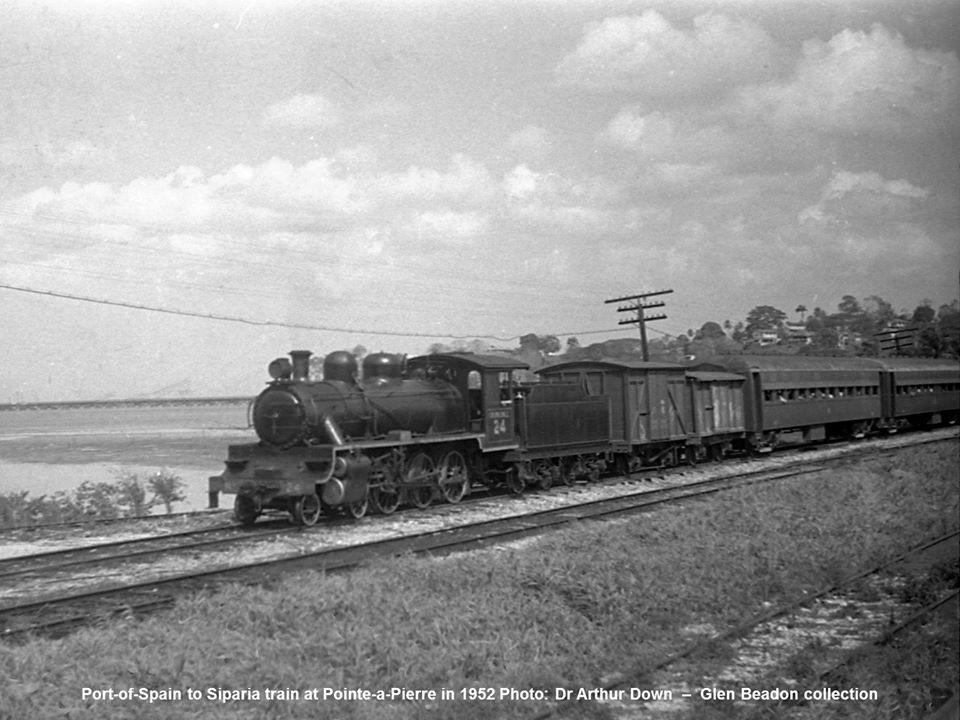 67 YEARS AGO, TODAY The closure of railways across Trinidad was a long drawn out process which was first discussed in 1920 when the TGR, that had opened in 1876, suffered its first year of financial losses after 45 years of profitable operation. Financial instability was largely due to the introduction of privately operated omnibuses for public transportation between 1908 and 1920. After WW1, there were also many private road haulage companies using surplus war equipment which greatly impacted freight traffic. Due to diminishing profitability on the railways, four separate economic enquiries were carried out by the Government in 1926, 1936, 1956 and 1963. The only improvement in the situation occurred when the railways proved “indispensable” during both world wars. It has often been said that railways in Trinidad were retained after 1936 due to the critical role it played during the second world war when it was saved by the Americans who used it to build and supply their base at Waller field. Despite efforts to arrest the decline by successive administrations, by 1950 the railway was in serious trouble once again. But the roads still had some way to go before they could completely substitute the railways especially when it came to the transportation of bulk commodities like sugar and very heavy oilfield apparatus for drilling and refinery. Nevertheless, the writing was on the wall and it seemed the “indispensability” of the Trinidad Government Railway was beginning to fade with each passing year. The critical role played by the railway during both World Wars was being quickly forgotten in the face of post war economic realities. In the face of mounting criticism, the Government acted. On the 12 March 1953 came first closure announcements across the TGR. The Arima to Sangre Grande, San Fernando to Princes Town and San Fernando to Siparia lines were all to lose their passenger services. Substitution bus services were widely publicised in the lead up to closures. Closures came as had been announced on 1 April 1953 and on this date the Arima to Sangre Grande line was completely closed to both passenger and good (some Orange Grove bound cane traffic continued for a few more years). The Guardian reported on the last departure from Sangre Grande, which left the station at 9:15 pm on the evening of April 1st. “The last train gave three mournful blasts each lasting three to four minutes as a farewell”. Also, on the same day, 1 April, the San Fernando to Princes Town (Guaracara line) and the San Fernando to Siparia line both closed to passenger traffic. The Guaracara line lost its goods service on 8 June. These lines were closed despite much protest. In a twist of fate, the Siparia line was to hold on to its goods services, presumably in order to service the now booming oil industry and the sugar cane scales between Usine Ste. Madeleine and Penal. In the 1950s the road system in Trinidad was not yet suitable for the transportation of heavy refinery equipment and drilling oilfield apparatus and reliance for this was placed on rail as was the transportation of bulk cane to Factory. During the course of its life the Siparia line brought many people to the district from all points of the railway network particularly during the yearly festival of La Divina Pastora when many extra trains, known as “Specials”, were put on in order to accommodate the high volume of traffic. This practice continued for several years following the withdrawal of passenger trains to Siparia in 1953 and there was a brief resumption of a passenger service 1964 when the authorities in Siparia petitioned the need to provide transportation for school children to and from San Fernando, this service only lasted a very short time. The reality was that people in the 1960s stopped using the railway. The route taxi became very fashionable and people saw it as a status symbol. Many will argue with me over this; however, one only must ask the old TGR workers and the argument becomes clear. People were not using the service. Trains ran empty except for periods of “rush hour” or perhaps during Carnival time. Within the final years, no service was more abused physically and verbally, than the railway. “Deficit-ridden,” “not economically viable”, “a drain on the economy.” “barren, bankrupt and archaic,” were some of the terms used by the public and press to describe the service. Physical abuse was perpetrated by vandals, and by the thousands who travelled daily without paying fares because of the dated ticket examination system in operation. This contributed greatly to its demise. Despite closures and measures designed to arrest the demise, losses over the final years continued; in 1964 the service lost $3.6m; in 1965 3.2m; in 1966 2.7m; in 1967 1.6m; and in 1968 (final year) $1.2m. A Cabinet-appointed committee which examined the railway, with special reference to closure, dismissed the possibility of the service ever becoming viable. In 1968 officials of the Public Transport Service Corporation, which operated the railway, reported on the unsafe condition of the rail tracks as the key reason why the service could not be retained. The cost of rehabilitating the service and making it safe was put at $590,000, money which "could be better utilised in providing a more efficient bus service". Personally, I believe that had the railway managed five more years of operation after 1968 there may have been a return to the rails by the public as our road traffic situation in and out of Port of Spain began to deteriorate. I'm sure the debate will continue for many more years to come. Source: Glen Beadon 1 April 2020 VM of T&T After the end of slavery in 1834, labour became scarce, and to fill the void, hundreds of peons from neighbouring Venezuela came to Trinidad as seasonal workers. An ethnic mixture of Amerindian, African and European, they were known as the cocoa panyols .
The harvesting of cocoa pods was very labour-intensive. Ripe pods were gathered every few week during the peak season. The high pods wer cut with large knives attached to bamboo poles ( gullets), taking care not to damage nearby flowers or buds. The pods were collected in large baskets, which workers carry on their heads , and piled up ready for splitting . Source: Virtual Museum of Trinidad & Tobago, April 2020 Photo Credit : Scott He From Chris at CaribbeanPot.com. Check out his videos on YouTube.
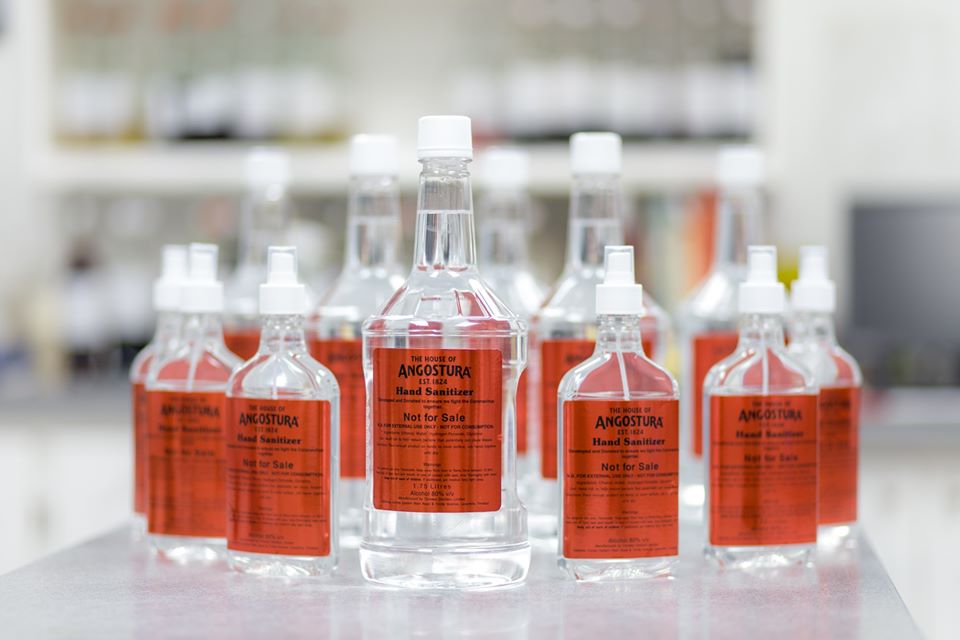 Port of Spain, Trinidad. April 3rd, 2020: The COVID-19 pandemic has brought global economies to its knees, with many grinding to a halt. It has crippled so many industries worldwide, particularly the food and beverage industry such as bars and restaurants, where millions of people around the world are now without a job, since bars have been forced to close their doors and restaurants have limited their businesses to pick-up services only. Most of the employees in these establishments have relied heavily on tips from customers to pay their bills to take care of their families. Their livelihood has now been uprooted by the outbreak of the coronavirus and it is anyone’s guess when normalcy will return. The food and beverage industry is an area that Angostura Holdings cares deeply about as it’s a sector that has continuously supported our business. To the healthcare workers and all other first responders around the world, thank you for taking care of everyone in your respective countries, and risking your lives daily to ensure that the coronavirus does not spread. Our employees, customers, suppliers, partners and communities are suffering due to this pandemic. As a corporate citizen of Trinidad & Tobago we cannot sit by and watch those who have supported us suffer at the hands of this dreaded coronavirus. It is our responsibility to do what we can to fight this virus from taking over our country. One of the products desperately needed at this time is hand sanitizer and, we are able to produce pharmaceutical grade alcohol to make it. Angostura has transformed its distilling capability to deliver all pharmaceutical demands while also producing 50,000 bottles of 375 ml and 20,000 bottles of 1.75 litres hand sanitizer to donate. As at April 1st, Angostura began distributing the hand sanitizer to public hospitals for healthcare workers, the Ministry of National Security for its first responders such as the Police Service, Defence Force, Prison Service in T&T, communities and other entities with direct public interaction. Our employees have been working tirelessly to ensure that we deliver the best quality of hand sanitizer. It comprises of 80% ethyl alcohol and small amounts of hydrogen peroxide and glycerin. It is made according to the World Health Organization’s (WHO) recommendations and formula. This is not the first time the Company has stepped in to give assistance to the nation. In fact, Angostura has a long history of supporting its communities, employees and partners, and this time around is no different. CEO Peter Sandstrom says, “We felt it was crucial to manufacture and donate hand sanitizer for frontline healthcare workers and other first responders. These are workers who are putting their lives on the line to combat the spread of COVID-19. It is important to us that they are protected from this virus. We, at Angostura, appreciate their sacrifices and we salute them for their contribution.” Sandstrom adds, “Angostura is a business built for people and by people. In times like these, it is essential, we deliver what the country needs. As an executive team, we took the decision to begin producing high-grade alcohol for sanitizing liquids to ensure that we could support the nation’s fight against the coronavirus, by preventing the spread of the virus with the very effective and powerful hand sanitizer. At a time when our plant was down, we have made modifications to increase, as far as we can, our alcohol production capacity. The excess alcohol though limited, has been distributed for sale to those licensed to produce hand sanitizers. Angostura is here to support the nation and we are making every effort to do this.” The company started a distillery upgrade back in December 2019, which is still underway and that has limited the amount of alcohol in our plant. Despite this, Mr. Sandstrom says, Angostura is committed to delivering what it takes to assist T&T. To say these are uncertain times is an understatement. We don’t know what lies ahead, but what we do know is that Angostura Holdings. will continue to play a role in fighting the spread of COVID-19 in T&T. As a global bitters and rum producer that has been around for over 195 years, know we will ride through this storm. COVID-19 is having a severe impact on all businesses. The coronavirus hit our country in mid-March when the first positive case was detected. Since then the number of positive cases has been climbing and this has led to a shutdown of many businesses, leaving thousands of people without jobs. We at Angostura have been able to sustain our operations so that we can maintain all our employees at this time, but this is being done through strict and stringent safety measures to protect everyone. While we have secured our personnel, we are constantly reviewing our supply chains to maintain business continuity. The Gov’t of T&T has closed off all international borders, thereby restricting entry, social gatherings have been prohibited, and social distancing is being encouraged in a bid to safeguard citizens from the dreaded virus that has taken over many other countries. The Government also took a decision to allow only essential services to operate for a two-week period, to ensure the amount of people leaving their homes is limited so that the coronavirus does not continue to spread. Together, we can all fight this and regain control of our lives and our beloved country. Prime Minister Dr Keith Rowley has announced that the stay-at-home order has been extended to April 30.
And all food services have been closed, effective tomorrow, until April 30. Schools will not reopen for the new term on April 20. And the Secondary Entrance Assessment (SEA), planned for some time in May, will have to be rescheduled. Government will begin distributing masks to citizens who have been told to wear the masks in public. And there are changes in the times during which essential businesses are permitted to open. The new order comes into effect on Tuesday. The announcement was made this morning during a press conference at the Diplomatic Centre, St Anns. Rowley told the nation that the health authorities tracking the spread of COVID-19 expects that by April 15, when the stay-at-home order was expected to end, “It is quite likely, certainly possible, we may be in a worse position that we were when we started”. He said the stay-at-home order would be enforced with greater compliance, to deal with the problem. He said he was not about people preserving their comfort zone or earning capacity. As a result, he said that effective immediately, the recommendation was that members of the public wears masks, and that the State would begin a mask-distribution programme. He said hardware stores, and electrical and plumbing businesses will be allowed to open from 8a.m. to noon, Monday to Saturday. The businesses that have been allowed to open, including some retails stores, discount stores, markets, fruit stalls, bakeries and parlours which provide food, have to close by 6pm. Wholesales businesses providing food will have to close by 4p.m. Pharmacies will close by 8p.m. Source: Daily Express, April 8, 2020 |
T&T news blogThe intent of this blog is to bring some news from home and other fun items. If you enjoy what you read, please leave us a comment.. Archives
May 2025
Categories
All
|
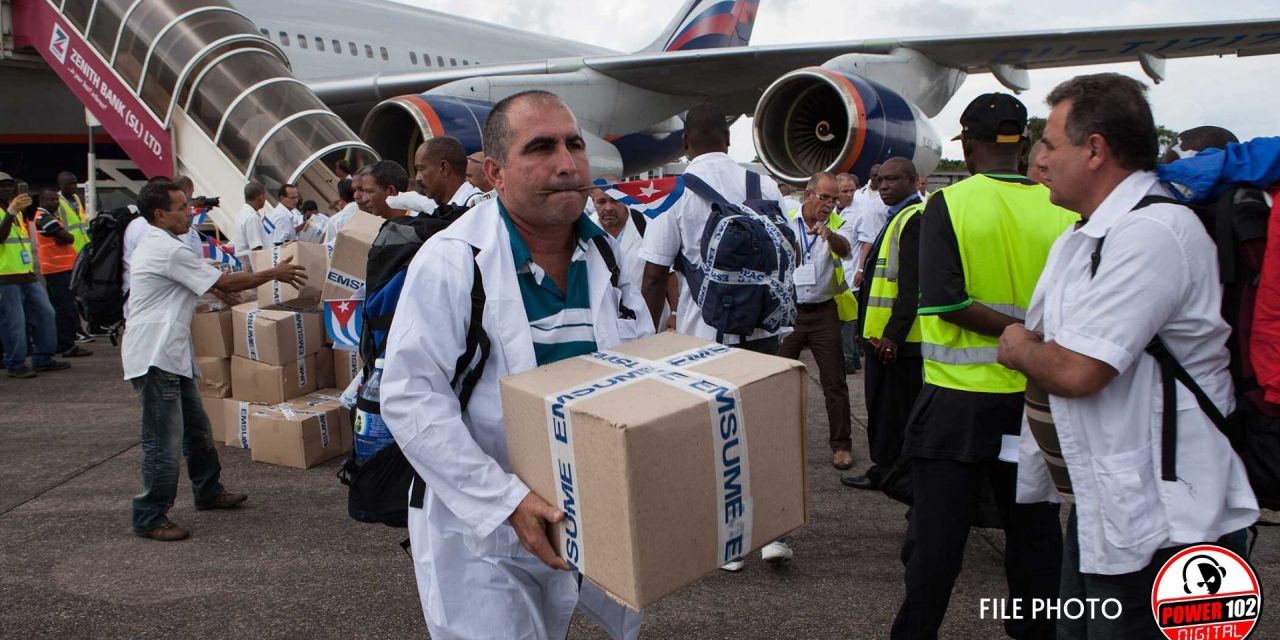


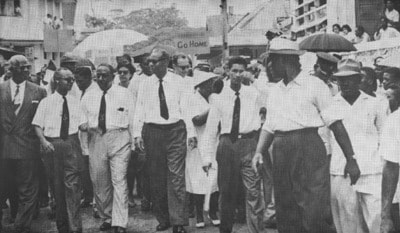
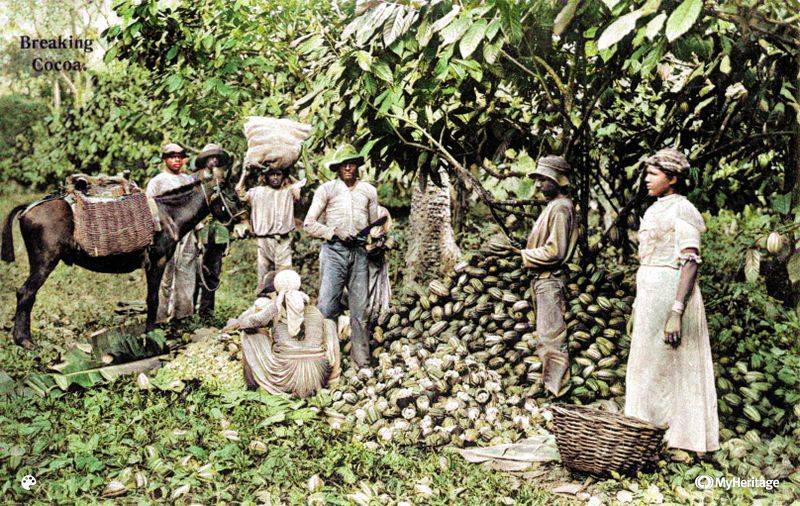

 RSS Feed
RSS Feed